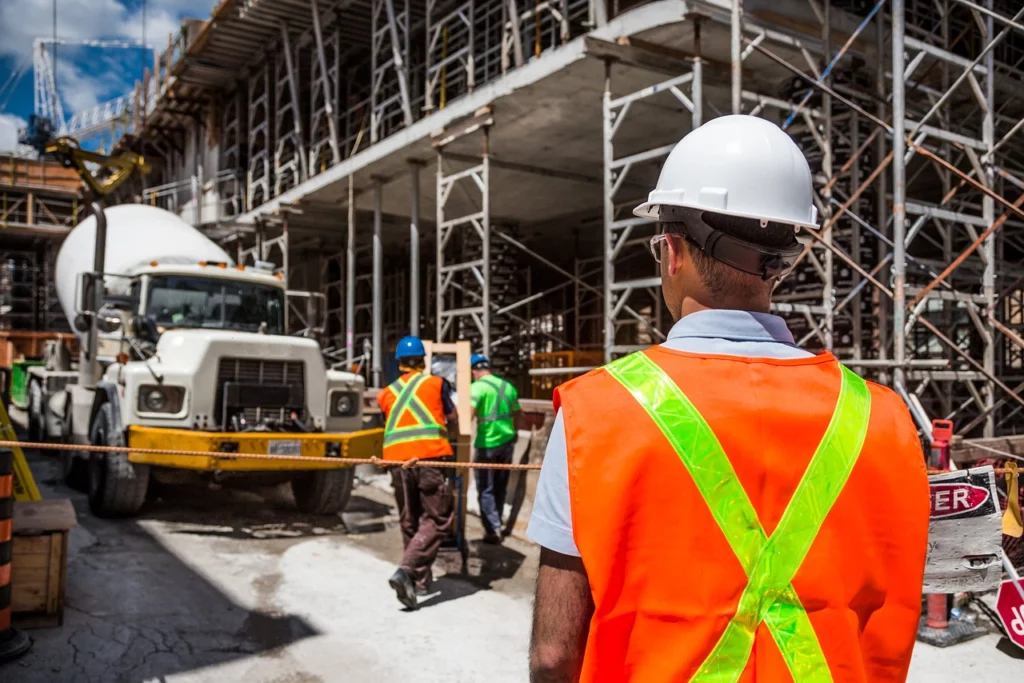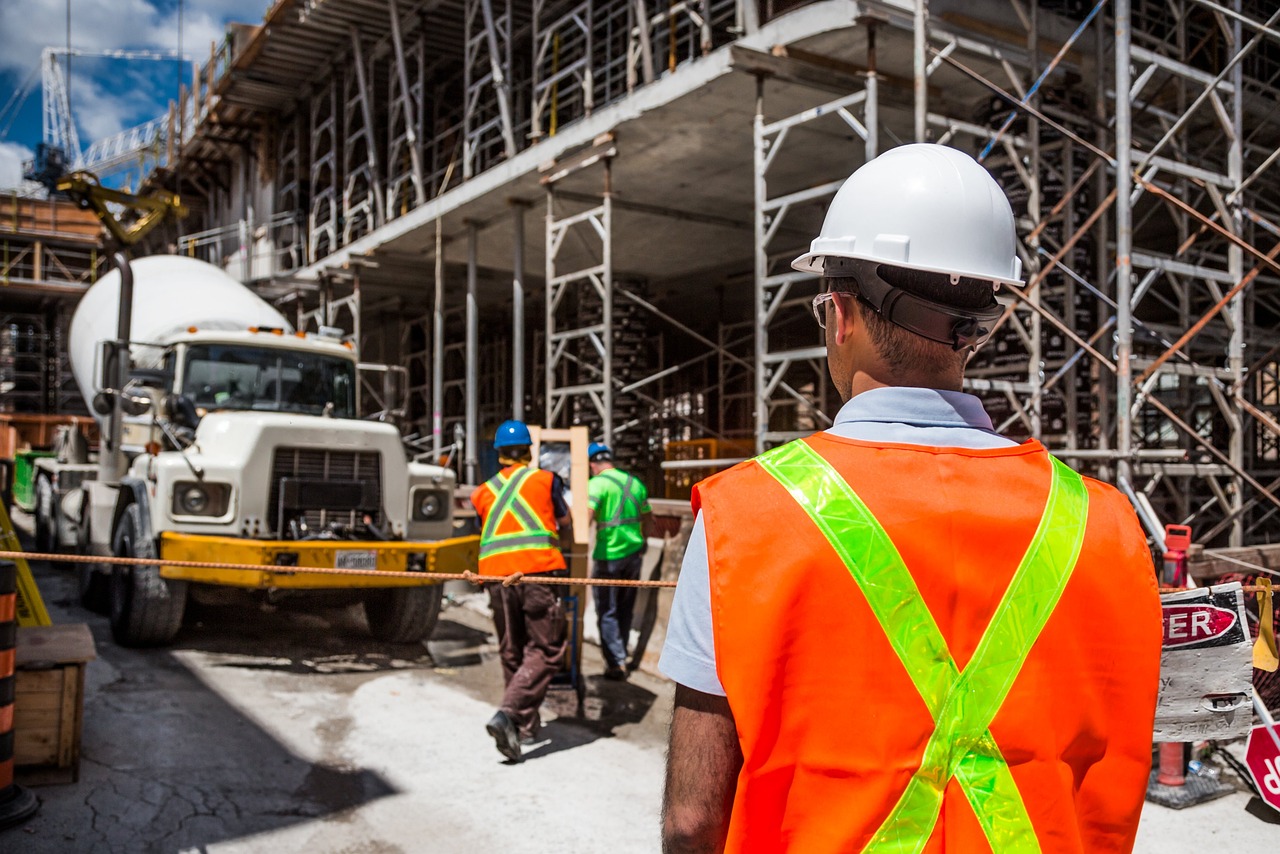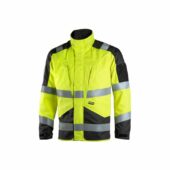In the construction industry, the importance of a well-structured and strategic indirect procurement process is all too often understated.
Indirect procurement refers to the sourcing of goods and services that are not directly involved in the production process but are vital for maintaining your business’s day-to-day operations. This could be anything from the procurement of helmets and hard hats to fall protectors.
Often misunderstood or overlooked, indirect procurement in construction is the cornerstone for both initiating and driving projects to fruition. It is not merely about obtaining the necessary materials; it encompasses strategic sourcing, managing complex supply chains, and contributing towards sustainable practices. In essence, it’s about placing the right orders, with the right suppliers, at the right time. Such a comprehensive approach ensures projects stay on track, meeting quality expectations whilst maintaining budget constraints and workers’ safety.
In this article, we will delve into the world of indirect procurement in the construction industry, focusing on the challenges, and the management strategies that enhance efficiency and cost-effectiveness within the industry.
Here are the topics we will cover:
- Understanding Procurement in Construction
- Procurement Management and Strategic Sourcing
- Critical Considerations in Construction Procurement
- Challenges and Opportunities in Construction Procurement

Understanding Procurement in Construction
To fully grasp the intricacies of construction procurement, one must first understand what it entails.
In its simplest form, indirect procurement in construction is the act of sourcing and acquiring the best supplies at the best possible price. This might be as basic as securing a delivery of workshoes or safety glasses.
This brings us to the indirect construction procurement process.
Typically, this process commences with a need identification stage, where the project’s requirements are mapped out in detail. Following this, an extensive sourcing process follows, identifying potential suppliers and evaluating their capabilities. Once a supplier is selected, contracts are negotiated and finalised, culminating in the delivery of goods or services, which are then evaluated for quality and compliance.
This process, however, can be quite time-consuming but this is where strategic sourcing comes into play.
Procurement Management and Strategic Sourcing
Navigating the world of construction procurement requires a strong management strategy. Indirect procurement management, in essence, plays a pivotal role in the successful operation of any construction project. It’s not simply about ordering supplies; it’s about careful planning, strategic sourcing, and risk assessment. When executed well, procurement management streamlines operations maximises value for money and ensures timely project delivery.
This brings us to the concept of strategic sourcing in construction. Strategic sourcing It’s far more than merely finding a supplier to fulfil your inventory needs; it involves a rigorous analysis of your company’s spending patterns, understanding the supply market, evaluating potential suppliers, and negotiating contracts to the company’s advantage. Strategic sourcing is about building long-term relationships with suppliers that can deliver high-quality products and services consistently and cost-effectively.
This is where a marketplace like Droppe can make a difference.
Droppe is a wholesale marketplace for where you can easily browse an extensive catalogue of 100,000+ industrial supplies for construction, and compare 100+ European suppliers based on their product selection, price, delivery time, and much more.
So, rather than spending countless hours negotiating with different suppliers, you now have their selections and offers in one single place. Plus, there are no geographical limitations, so your personal supplier pool will expand throughout Europe.
Once you’ve found the right suppliers, it will only take you a moment to proceed to purchase products from different suppliers across Europe in one single invoice. Droppe takes care of all the details, from payment to order handling, so you can focus on what really matters – keeping your activities flowing without any hiccups.
Critical Considerations in Construction Procurement
Maintaining safe and sustainable operations is of utmost importance in the construction industry, with certain elements taking precedence in achieving this goal.
One such aspect is the procurement of Personal Protective Equipment (also known as PPE). It is non-negotiable, serving to safeguard workers from potential hazards inherent in construction sites. PPE, such as helmets, safety footwear, and high-visibility clothing, along with specialised safety equipment like scaffolding and harness systems, are indispensable components of any construction project. Your indirect procurement process must ensure their availability, quality, and compliance with safety regulations.
Equally crucial is the management of the construction industry’s supply chain. Proper supply chain management contributes to efficient indirect procurement by reducing delays and minimising costs. For instance, a well-managed supply chain ensures the timely delivery of workwear, thereby avoiding costly project delays.
Plus, sustainable indirect procurement in construction, though a relatively newer focus, is of growing importance. This concept is not just about minimising environmental impact; it also involves considering the social and economic implications of procurement decisions. Sustainable procurement could encompass sourcing from local suppliers to reduce carbon footprint.
Challenges and Opportunities in Construction Procurement
In the realm of indirect construction procurement, challenges and opportunities often go hand in hand. One of the main challenges you might face is managing cost fluctuations due to volatile pricing. For example, sudden price hikes in steel or cement can significantly inflate project costs and disrupt your procurement budget. Furthermore, supply chain disruptions, such as delays, can derail project timelines, adding to the intricacies of procurement management in the construction industry.
However, these hurdles also present a chance to innovate and optimise.
Several strategies can be employed to achieve cost savings in construction procurement. A key strategy is leveraging strategic sourcing and focusing on your Total Cost of Ownership (TCO) rather than just upfront costs.
If you’d like to learn more on how how to master and calculate your Total Costs of Ownership (TCO) read our articles:
Alternatively, embracing technology can streamline procurement processes and generate significant cost savings. For instance, digital tools can help with your spend analysis, enabling more informed and efficient procurement decisions.

Conclusion
In conclusion, the success of any construction project hinges heavily on the efficacy of its indirect procurement process, whose significance cannot be overstated.
Indirect procurement involves much more than just purchasing supplies, encompassing strategic sourcing, rigorous planning, and focused management – all intricately interwoven with the goal of constructing safe, sustainable, and cost-effective structures.

















